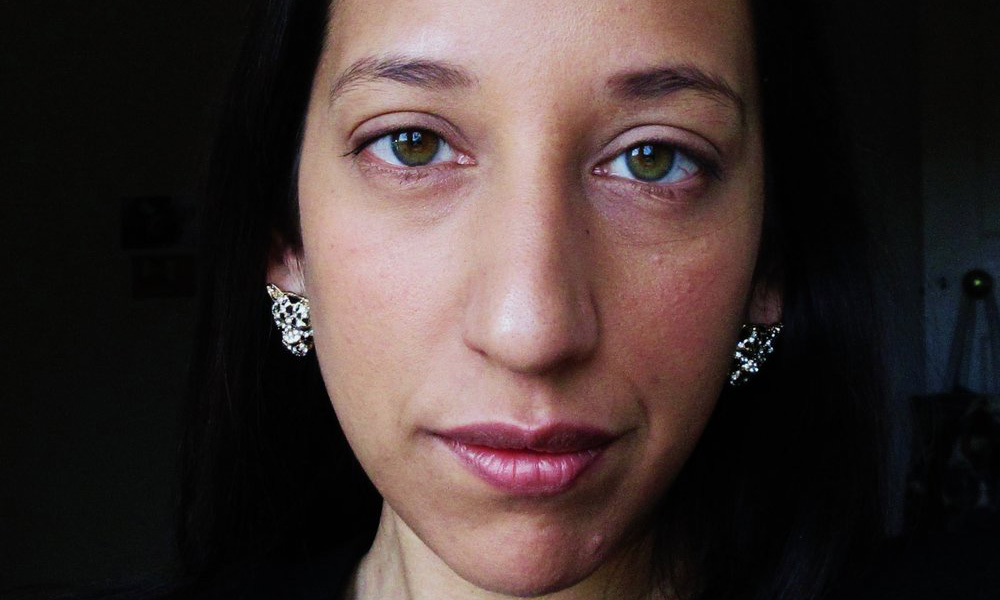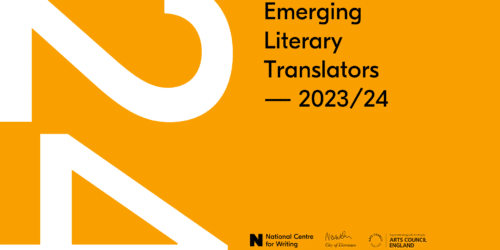
Elif Shafak’s selection of writers for the International Literature Showcase gives us a powerful concentration of literary and cultural concerns. Their work undercuts, overleaps, complicates and satirises canonical conventions of ‘Great British writing’, with its traditional celebration of 19th century realist prose by (mainly) Englishmen.
With her early background in acting and theatre, Bernardine Evaristo brings an electric vividness and compelling voice to original works which challenge and reinterpret identity. In her 2001 novel The Emperor’s Babe, she re-writes history by placing a modern black girl into Roman London. In Blonde Roots she flips Western beauty ideals on their head. And in Mr Loverman she undercuts macho bluster with a story of a black Londoner who is secretly gay.’
The time is ripe for such a widening of perspective. We are at a point of cultural reckoning not only within Britain but also globally, as states grapple with issues of identity, homeland, belonging and refuge. We look to literature to help us understand the trauma of war and the fact that forced migration is a constant across human history. Kapka Kassabova is based in Scotland, but came poetry, fiction, and non-fiction, her art is as broad as her heritage. Her work faces the legacy of communism and dictatorship, as in her novel Street Without A Name, while her most powerful book so far, Border, traces what used to be the eastern edge of the Iron Curtain, bordering Bulgaria, Turkey and Greece.
Within Britain, the cultural reckoning with identity embraces the pains and triumphs of the millions who have arrived and made their lives here across decades in the postwar period. Poet Patience Agbabi combines the formal rigour and daring of the English Modernist poets with a refreshing breadth of interest, from race and identity to sexuality. A British author of Nigerian heritage, she effortlessly blends influences and serves as an advocate for Black British writing, as her inclusion in the landmark anthologies Bittersweet: Contemporary Black Women’s Poetry and IC3:The Penguin Book of New Black Writing in Britain shows. Authors like Agbabi have not come out of nowhere: indeed, Black British writing encompasses a vast array of postwar authors including Zadie Smith, Diana Evans, Andrea Levy and Jackie Kay.
We are also at a crucial moment – perhaps even a tipping point – of witnessing the return of violent and exclusionary populism which seeks to ‘restore’ states to some imagined ideal of racial or cultural purity. The selected writers demonstrate that no such state ever existed. Journalist, cultural commentator, classicist and historian Charlotte Higgins’s book Under Another Sky: Journeys in Roman Britain delves into Britain’s Roman past archaeologically, geographically and culturally and examines the stories subsequent centuries of British writers have told themselves about the Romans’ presence in the land.
Higgins also taps into a longstanding British literary preoccupation with landscape and the natural world – a Romantic longing for communion with the earth. This interest has been compounded with a newfound urgency as, threatened by climate change, British writers look again at what we stand to lose. Consider Sara Maitland, whose book Gossip From The Forest combines narrative non-fiction, nature writing and fairytale. Her work is concerned with contemplation of the natural world and is alive to a tradition of myth, folklore and fairytale which evokes the late, great Angela Carter. Consider too Gillian Clarke, who was the National Poet of Wales from 2008 to 2016. Her collection Ice was inspired by the cold winters of 2009 and 2010, while Making the Beds for the Dead contemplates war and disease, geology and archaeology, and the poems in A Recipe for Water pay tribute to the many forms and symbols of water.
None of the ten selected authors is like any of the others, yet all reflect and normalise women’s interiority and agency as characters and give respectful weight to women’s experiences and emotional reality, as well as those of male characters. Jessie Greengrass is one of Britain’s most psychologically astute authors. Her debut novel Sight is a probing, seriously accomplished consideration of what it means to choose to make a child and to become a mother, as well as a reckoning with the children we have been and the mothers (and foremothers) we have had.
This is linked to a wider drive – of which the #MeToo testimonial movement is a part – to acknowledge women’s voices and the endemic reality of male sexual violence on women’s lives. Evie Wyld’s powerful second novel, All The Birds, Singing, is a breathtaking excavation of a young woman’s violent and traumatic history as well as a muscular evocation of the rural landscape.
There is a great British crime tradition of small-town malaise, and the insidious effects of class privilege reflected so brilliantly by writers like Ruth Rendell, PD James and Val McDermid. Like them, Denise Mina’s crime novels are concerned with social injustice, inequality and the desire for abuses and violations to be righted. In police detective Alex Morrow, reporter Paddy Meehan and abuse survivor Maureen O’Donnell she has created three distinctive heroines. Her work dignifies women both as victims and investigators of violence, and reflect on wider events. The End of the Wasp Season is set during a global recession and looks at a brutal murder of a woman in an upmarket neighbourhood
As humanity shows itself to be unable or unwilling to learn the lessons of the past, British literature’s poignant distinction when it comes to war writing continues.
The Irish writer Lucy Caldwell is the recipient of numerous awards for her novels, plays, radio dramas and short stories. Whether she is reflecting on the Troubles, as in her novels All The Beggars Riding and Where They Were Missed, or focusing on a young man in Palestine’s West Bank, as in her play The Luthier, a prevailing theme is that of the long after-effects of occupation, conflict, war and secrecy on ordinary people.
The work of British writers living and working today is outward-looking, formally diverse, able to cross literary traditions and academic disciplines. It is vitally relevant to conversations that are happening well beyond the literary realm – in journalism, activism, ecology, politics and psychology. These ten authors are searchers, looking within the human soul, within the local and national environment and beyond, to the further corners of the rest of the world.
Bidisha, February 2019.
Elif Shafak reveals her selection of 10 brilliant UK women writers
You may also like...
Elif Shafak introduces her selection of 10 exciting women writers in the UK
‘I see these ten women writers and poets as the voice of our conscience.’

12th March 2019
Unveiling the new International Literature Showcase 2019
Elif Shafak’s 10 great UK writers revealed at London Book Fair

12th March 2019





